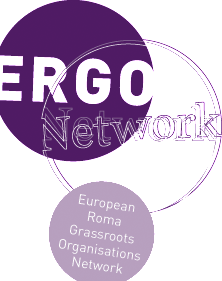


Antigypsyism on the agenda at EU’s High-Level Group on combating racism, xenophobia and other forms of intolerance
The EU’s High-Level Group on combating racism, xenophobia and other forms of intolerance, bringing together representatives of EU Member States and civil society representatives, put special emphasis on discussing antigypsyism at their 4th High-Level Meeting taking place on 5 December 2017.
Vera Jourova, European Commissioner for Justice, Consumers and Gender Equality, expressed deep concerns regarding the widespread social acceptance of antigypsyism. As an example she brought the case of hate speech and death threats against Czech Roma singer Gypsy.cz, which was fined with only 4 Euros by a domestic court. Judicial cases such as this send a wrong message when it comes to combating antigypsyist hate speech.
MEP Soraya Post (S&D Group) emphasized the urgent need to remedy antigypsyism as the root cause of discrimination and hatred against Roma and called upon all governments and duty-bearers to take responsibility for their citizens. She warned: “Europe is at a crossroads again. Extremist parties are getting into the governments, xenophobic voices are getting more and more common and tolerated even by members of governments”.
Jamen Gabriela Hrabanova, Director of ERGO Network, presented the Reference Paper on Antigypsyism in her contribution and pointed out the importance to focus on mainstream society when combating antigypsyism: “It is essential to see that antigypsyism is not a 'minority issue'. It is a phenomenon of our societies, which has its origin in how the social majority view and treat those whom they consider 'gypsies'. To combat antigypsyism, our attention needs to shift to mainstream societies, while raising the voices of those who are dramatically affected by antigypsyism, but also usually silenced by it”.
The EU Fundamental Rights Agency presented findings of the second survey on discrimination and hatred targeting minorities throughout the EU. The survey shows that Roma and people of African descent face above-average levels of discrimination and hatred across Europe, which affects them in all areas of life and is greatest when looking for a job. Roma are more likely to be victims of hate motivated harassment and violence as well as ethnic discrimination than any other group, but three quarter of the respondents do not know any organisation offering support to victims and are unaware of relevant legislation protecting them. Due to a lack of trust, knowledge and resources, non-reporting of incidents of discrimination and hatred still remains a challenge. Reporting of hate-motivated harassment and discrimination to relevant services did not increase since 2008.
The survey results show the severity of discrimination and hatred against Roma in Europe. We urge the European Commission to assign the Fundamental Rights Agency to publish a study on antigypsyism in the EU and candidate countries and to provide a deeper analysis of the EU MIDIS II survey by looking at structural and institutional discriminatory practices and policies.
ERGO Network together with the Central Council of German Sinti and Roma and the European Network against Racism urge EU Member States to take targeted measures against antigypsyism. These should be included in the National Roma Integration Strategies and the National Action Plans against Racism. Disaggregated data on hate crimes against Roma and their property needs to be collected and antigypsyism must be recognised to allow national authorities to analyse trends of hate crimes affecting Roma and to develop effective responses to ensure recording, prosecution and adequate support to victims of racist violence and hate speech.
For more information, please contact
Jamen Gabriela Hrabanova, ERGO Director, g.hrabanova@ergonetwork.org ;
Julie Pascoet, ENAR Senior Advocacy Officer, julie@enar-eu.org ;
Anja Reuss, Policy Adviser, Central Council of German Sinti and Roma, anja.reuss@sintiundroma.de.
